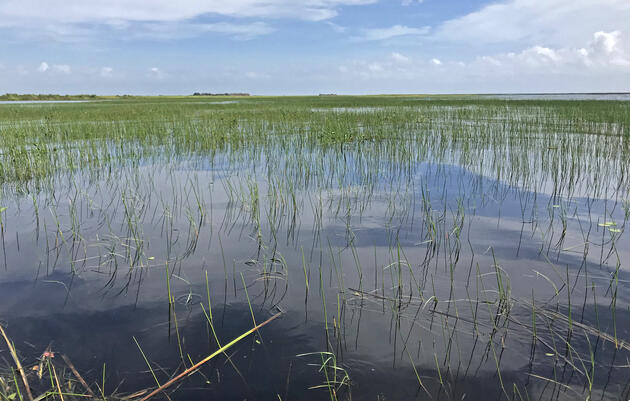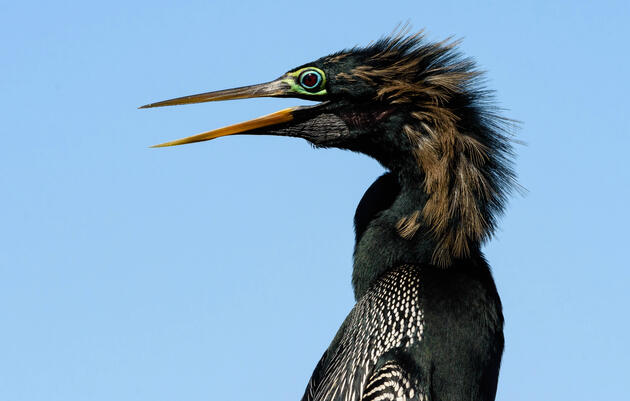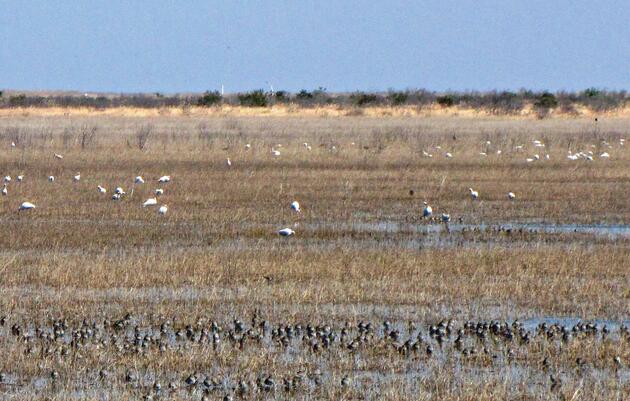Water defines Florida’s natural ecosystems. Seasonally abundant rainfall seeps into vast aquifers and floodplains, releasing billions of gallons of freshwater through springs and rivers to nourish productive seagrass and marshes along the coasts.
While Florida public policy has long aspired to manage water resources to balance benefits for natural systems, economic uses, and population growth, today wetlands, springs, rivers, lakes and estuaries suffer from decades of over-drainage, pollution, overuse and poor management.
With a reputation for using science to guide our work and birdlife to measure ecosystem health, Audubon staff members are known to provide sound technical advice. Beth Alvi, Director of Policy, and Chris Farrell, Northeast Florida Policy Associate, have been tapped to serve on Technical Advisory Committees for two Florida Department of Environmental Protection programs.
Stormwater Rulemaking Technical Advisory Committee (TAC)
The Clean Waterways Act, created by the Florida Legislature in 2020 through Senate Bill 712, directs DEP and the water management districts to update stormwater design and operation regulations. The Clean Waterways Act Stormwater Rulemaking Technical Advisory Committee (Clean Waterways TAC) was established to recommend improvements in stormwater design and operation regulations with a goal of reducing nutrient pollution in Florida’s waterways. As stormwater is one of the largest contributors of nutrients to waterways throughout the state, this goal is in perfect alignment with Audubon’s mission.
Alvi, with more than two decades of experience in policy development, implementation, conservation, and resource management, has worked in leadership roles in both the private and public sectors. She has been serving on the Clean Waterways TAC since it was established in December 2020.
Onsite Sewage Treatment and Disposal Systems Technical Advisory Committee
The Clean Waterways Act also directed the DEP to create an Onsite Sewage Treatment and Disposal Systems (OSTDS) Technical Advisory Committee. That committee is tasked with providing recommendations to the Governor and Legislature related to permitting, locating, and marketplace availability of OSTDS systems, including ways to fast-track the use of enhanced nutrient-reducing technology.
Farrell, employed by Audubon for more than a decade, is one of the environmental representatives selected to serve on this TAC. He brings a diverse set of skills to the committee as an ecologist who has engaged in many water-related regulatory and policy efforts throughout Florida. The committee met for the first time this week and must submit its recommendations to the State by January 1, 2022.
“Water quality is not only important to our wildlife, but to our way of life,” says Farrell. “I welcome this opportunity to serve on this critical committee,” he added.
Audubon protects birds and the places they need.






